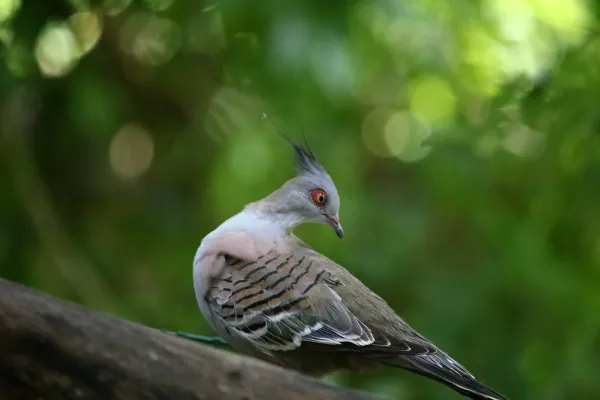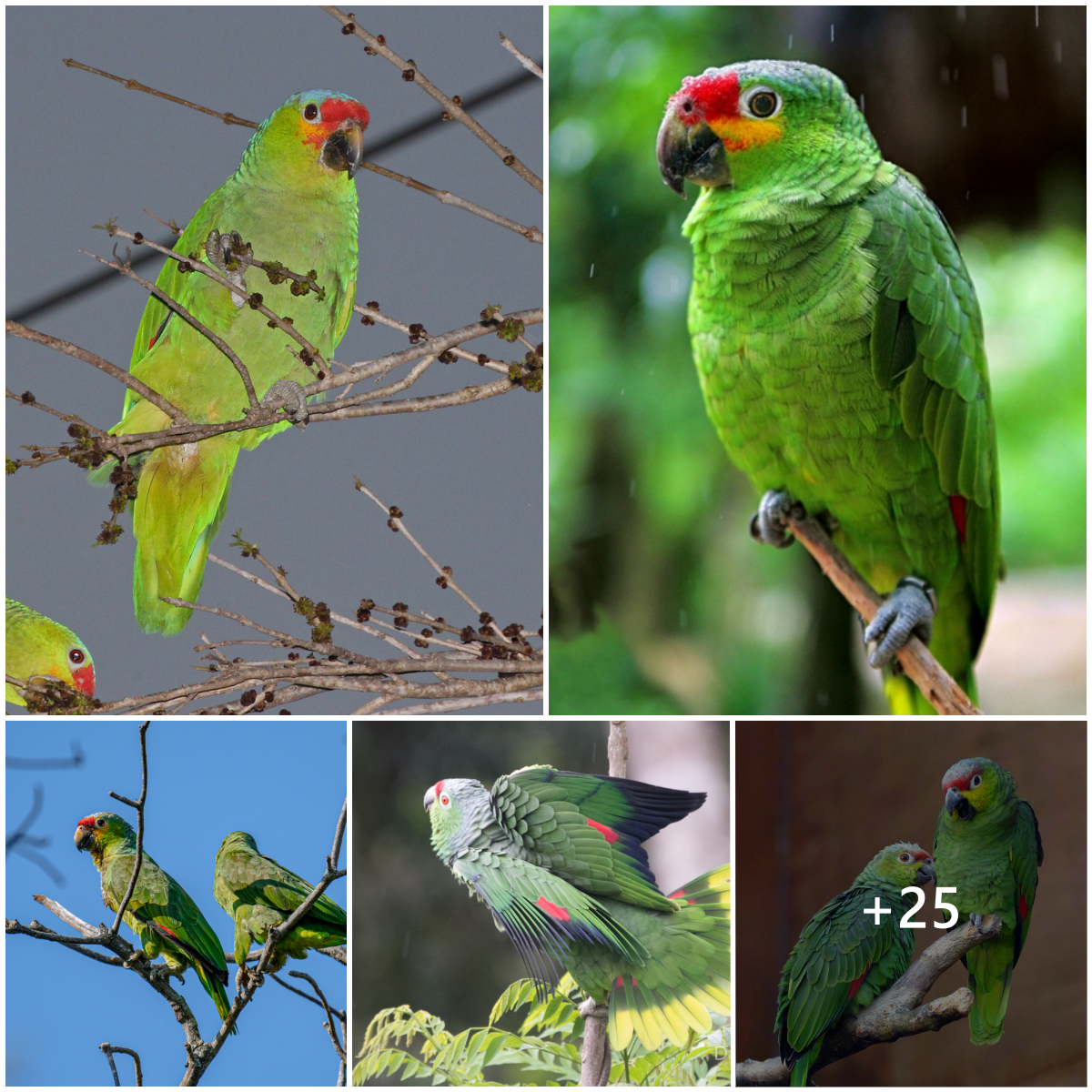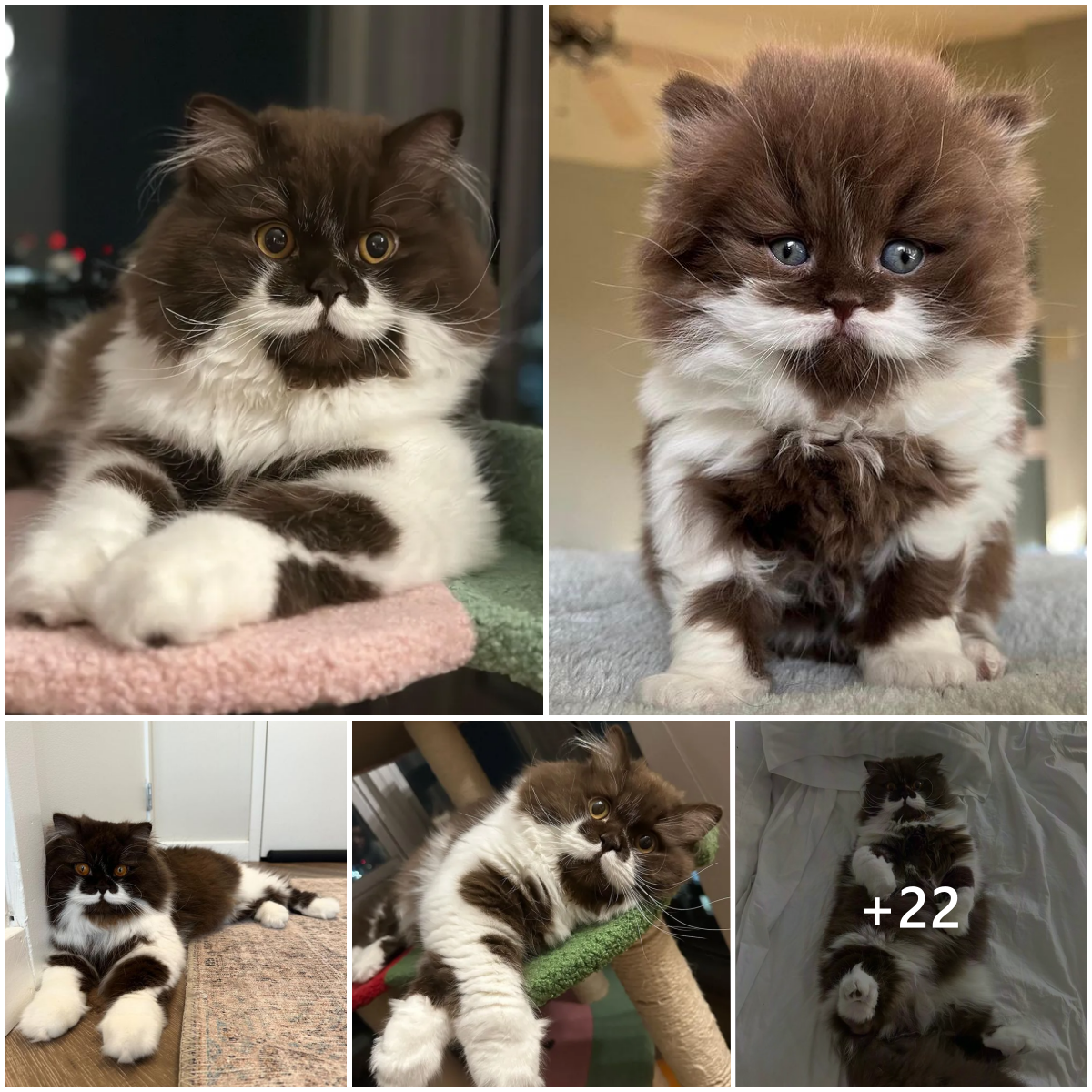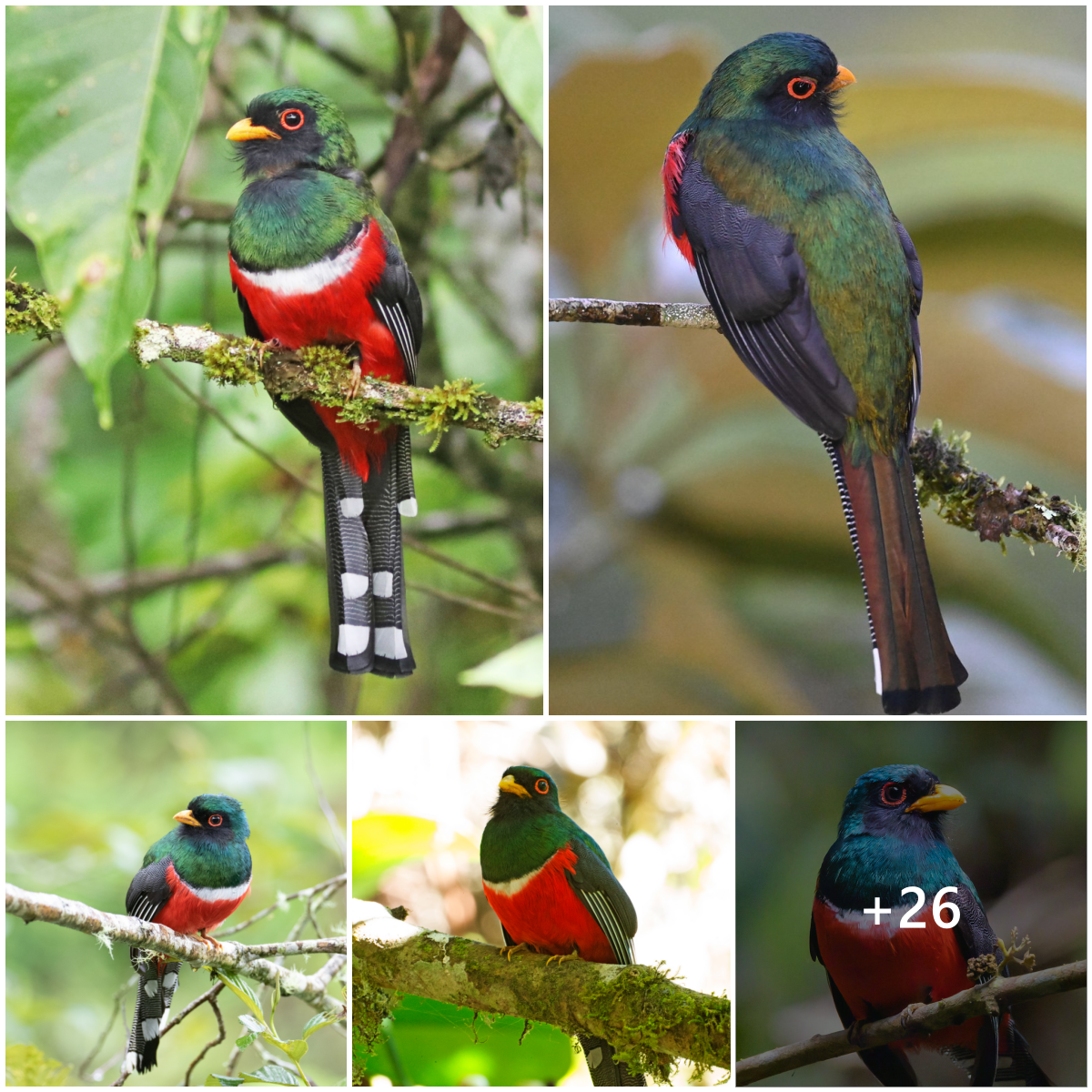The crest adorning the head is an awe-inspiring sight. This distinctive characteristic, combined with the intricate patterns and vibrant colors of its feathers, establishes it as one of nature’s most exquisite avian wonders.
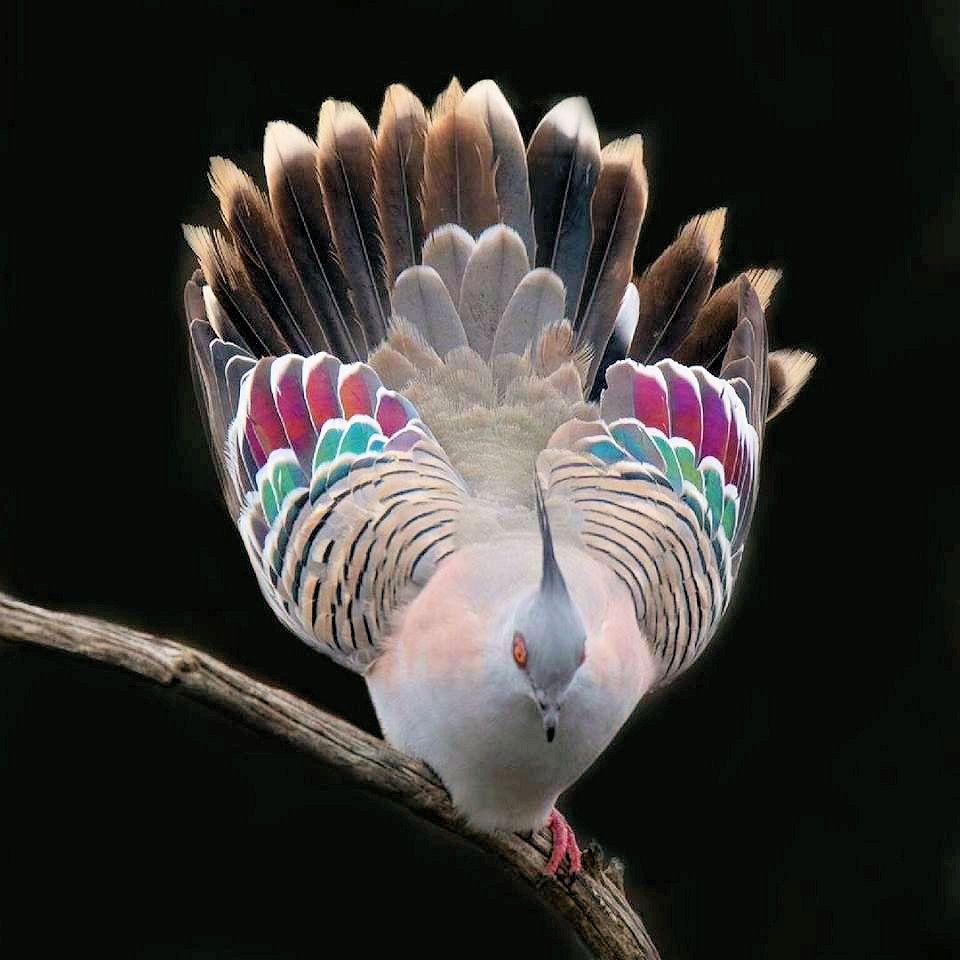
Comprised of elongated feathers, the crest of the crested pigeon (Ocyphaps lophotes) can be raised or lowered, reflecting the pigeon’s mood or level of excitement.
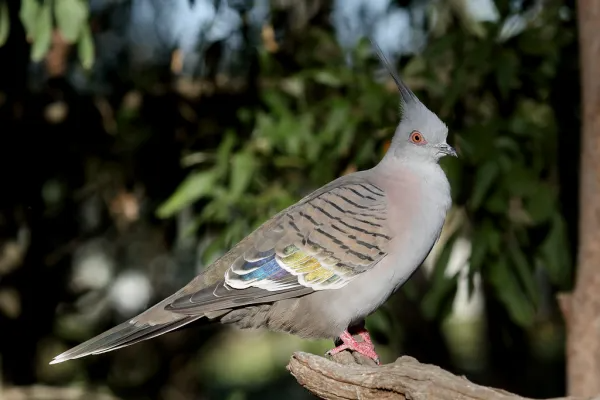
“Crested Pigeon (Ocyphaps lophotes)” by patrickkavanagh is licensed under CC BY 2.0.
Beyond its remarkable crest, the crested pigeon showcases a stunning palette of hues and patterns on its plumage. Its primary color is a gentle gray, accentuated by darker shades on the wings and a subtle pink hue on the chest. Intricate black and white designs adorn the feathers of its back, creating an almost paisley-like appearance.
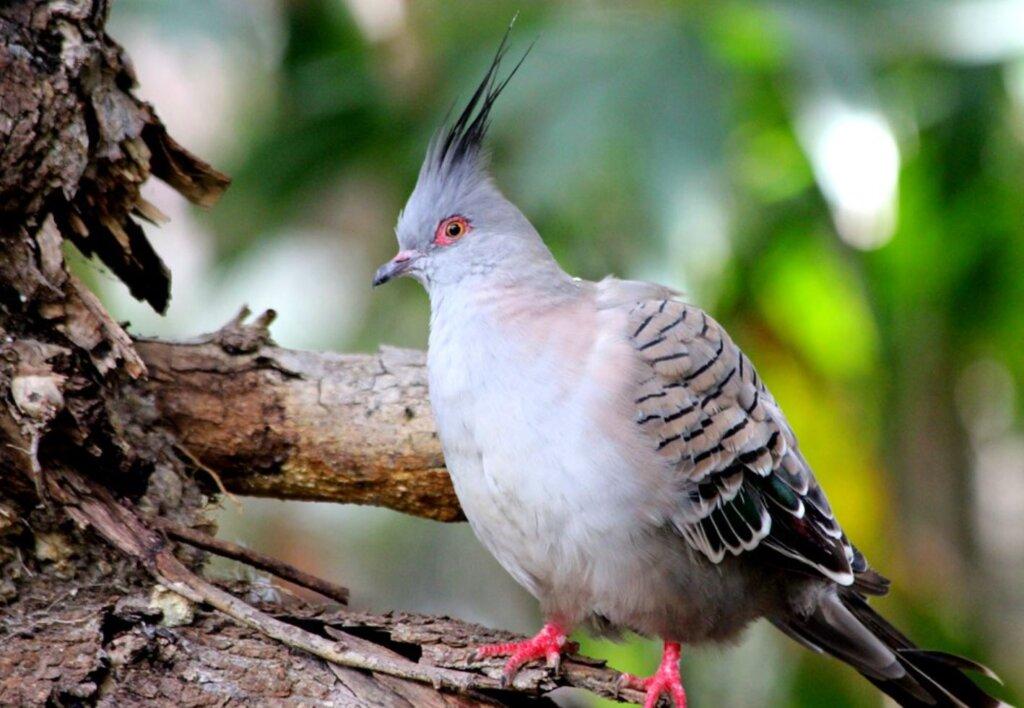
“AUSTRALIAN CRESTED PIGEON” by cuatrok77 is licensed under CC BY-SA 2.0.
Despite its captivating features, the crested pigeon is a relatively common species prevalent across many regions of Australia. It thrives in parks, gardens, and urban areas, effortlessly adapting to human presence.
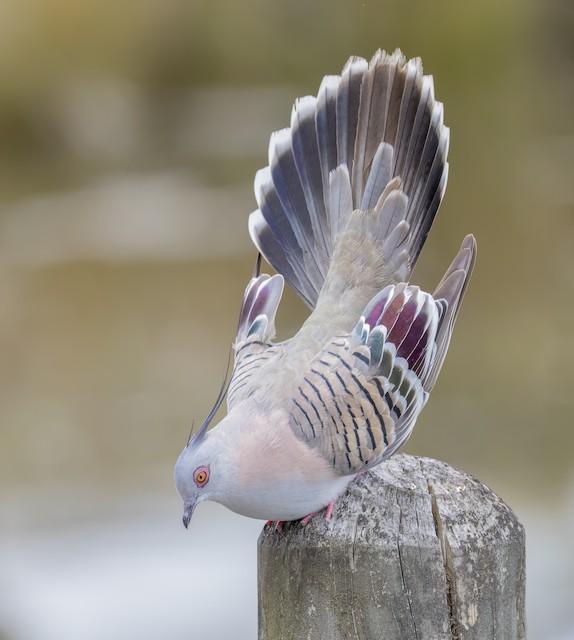
While its presence may be frequent, its beauty remains unparalleled. Whether captivated by its crest, mesmerized by its colors, or entranced by its patterns, the crested pigeon undeniably shines as a symbol of avian magnificence.
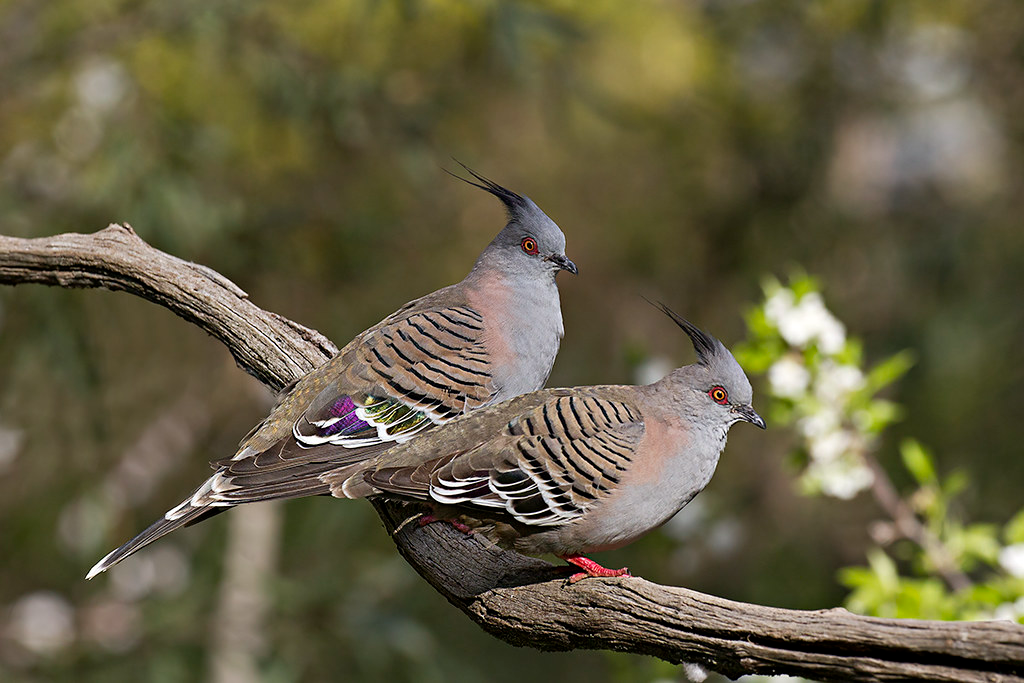
These adaptable birds have quickly adjusted their foraging habits to include grains, particularly in grain farming areas. They have even adapted to consume the noxious weed known as Echium plantagineum, showcasing their ability to thrive in various ecological niches.
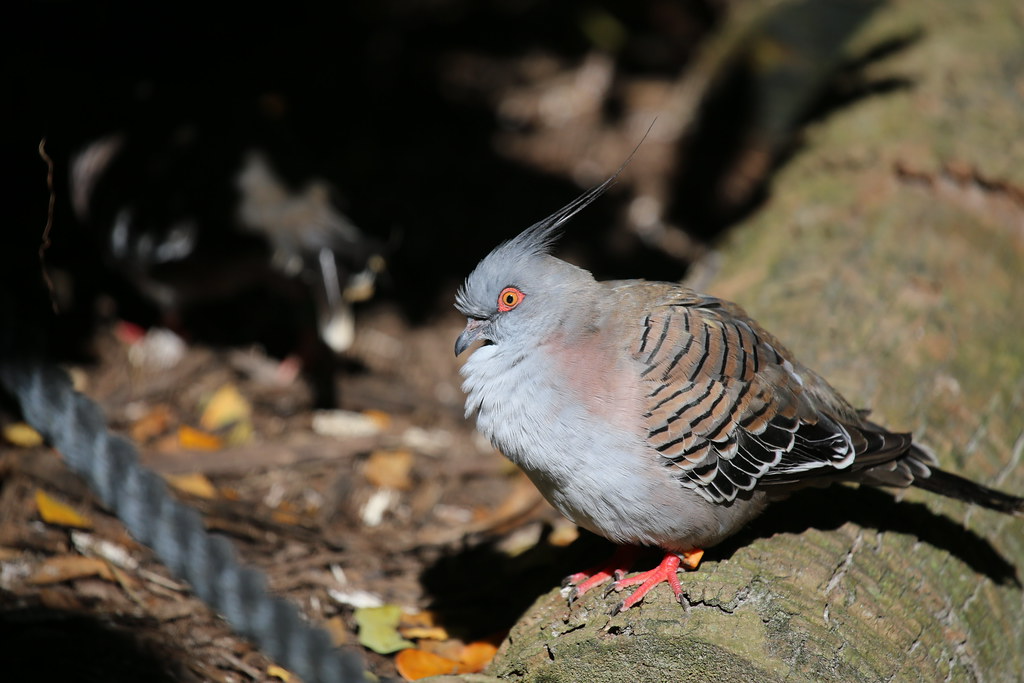
Breeding activity for crested pigeons occurs throughout the year, although it is more prevalent during the warmer months. During this time, male pigeons engage in an intricate mating display. They approach females and initiate an elaborate dance, characterized by rhythmic body bobs. With each bob, their wings gracefully open and close, resembling a fan. This captivating performance is accompanied by a soft hooting sound, perfectly synchronized with their movements. If the female displays interest, she remains relatively still as the male approaches, leading to attempted copulation.
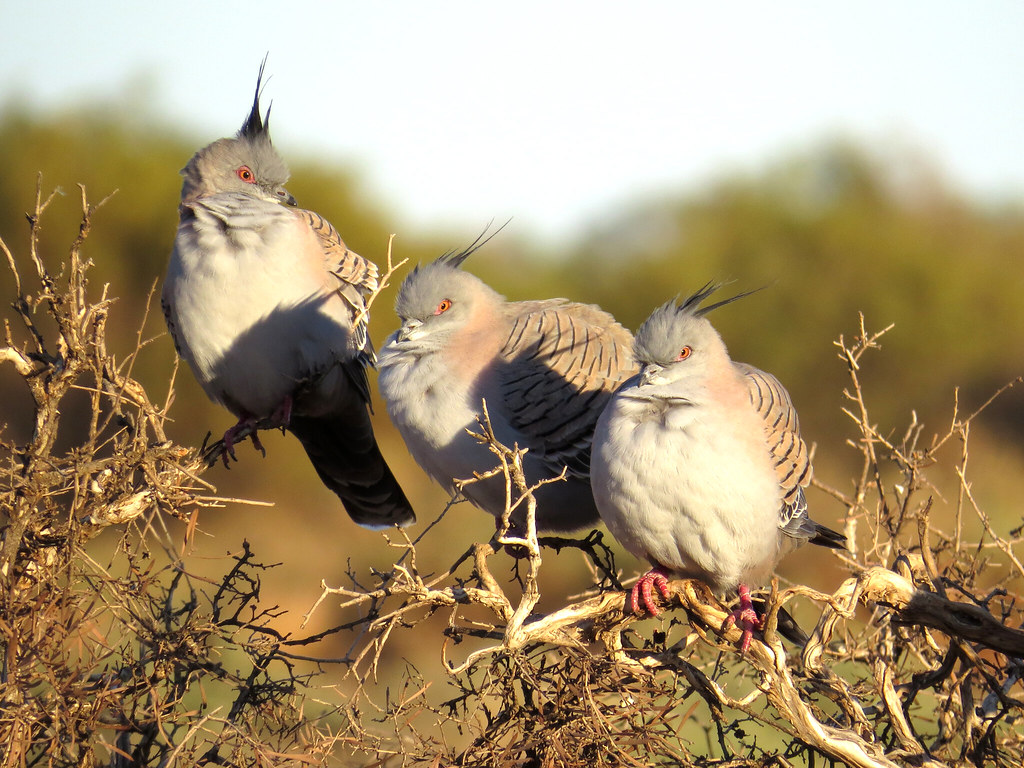
“Crested Pigeons (Ocyphaps lophotes)” by Graham Winterflood is licensed under CC BY-SA 2.0.
When it comes to nesting, crested pigeons typically choose shrubs or trees as their preferred locations. The nests they construct consist of a sturdy platform made from twigs. The female then lays two oval-shaped, glossy white eggs. After approximately three weeks, the eggs hatch, and both parents take turns incubating them, sharing the responsibility.
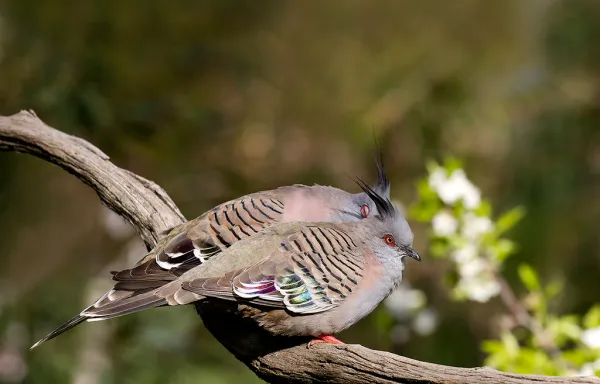
Overall, the breeding behavior and nesting habits of crested pigeons showcase their remarkable courtship rituals and cooperative parenting, contributing to the perpetuation of their species.
